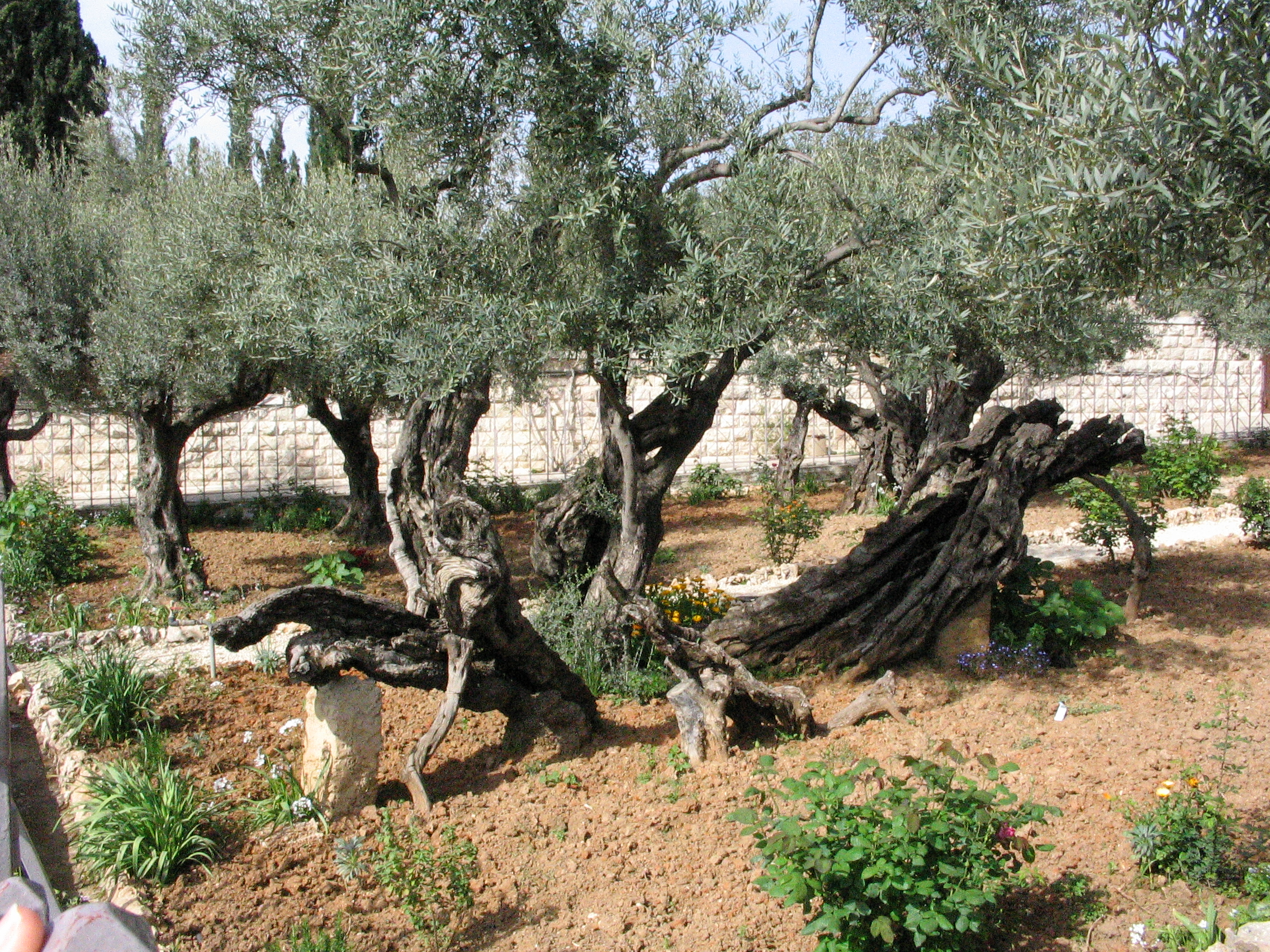The above image, courtesy of Gary Asperschlager, shows olive trees growing near the Church of All Nations on the Mount of Olives. Revised: 19-Apr-13How did a Jew in Jesus’ time announce that he was the Messiah? One accomplished this by applying to himself words or phrases from Scripture that were interpreted by members of his community to be references to the coming Messiah. Being interpretations rather than direct references, such messianic allusions are extremely subtle, and easily missed by modern readers of ancient Jewish literature. Claimants certainly did not reveal themselves by simply declaring, “I am the Messiah,”Even today a Jew who believes he is the Messiah never says, “I am the Messiah,” but rather, a messianic pretender refers to himself using words or phrases from scripture texts that have been interpreted messianically.
Salted with Fire
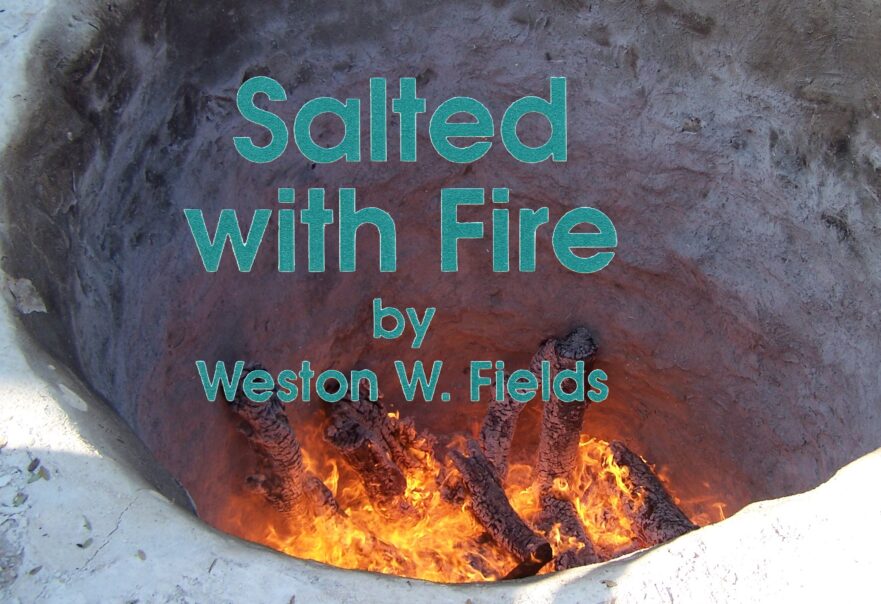
— wp:paragraph {“dropCap”:true} –>
Among the difficult sayings of Jesus, Mark 9:49 is one of the most enigmatic: Πᾶς γὰρ πυρὶ ἁλισθήσεται (pas gar pū⋅RI ha⋅lis⋅THĒ⋅se⋅tai, “Everyone will be salted with fire”). … — wp:paragraph {“style”:{“color”:{“background”:”#8dd2fc4a”}}} –>
For reflections on “Salted with Fire” by Weston Fields, see “Engaged: Eternally Dwelling In Hell?”
The Teaching of Balaam
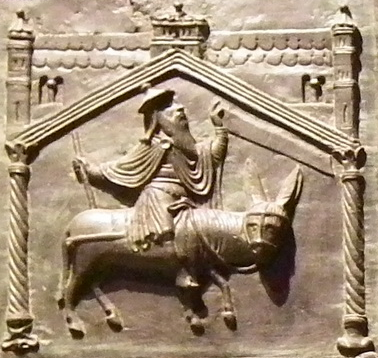
— wp:paragraph –>
And to the angel of the church in Pergamum write: “The words of him who has the sharp two-edged sword: ‘I know where you dwell, where Satan’s throne is; you hold fast my name and you did not deny my faith even in the days of Antipas my witness, my faithful one, who was killed among you, where Satan dwells. … — wp:paragraph –>
For our limited study, I am particularly interested in the thrust of the author’s rebuke and the enigmatic reference to “the teaching of Balaam,” which seems to be derived from the author’s understanding of the Moabite prophet’s instruction to Balak.
A Body, Vultures and the Son of Man (Luke 17:37)
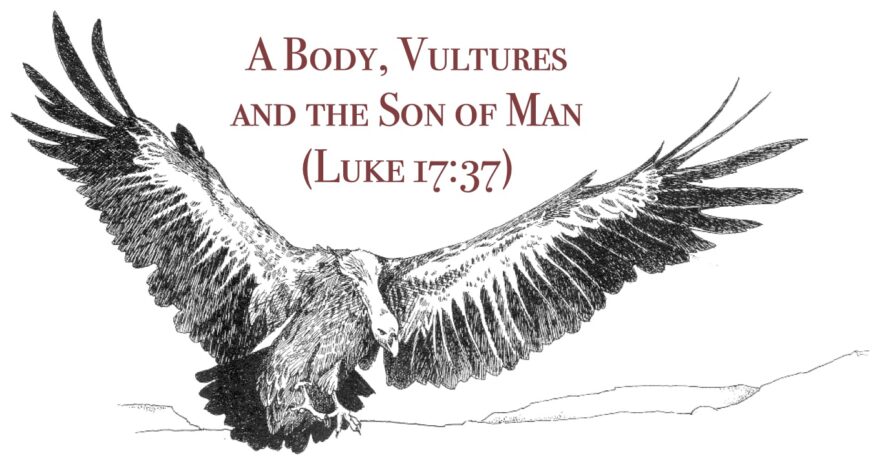
— wp:paragraph {“dropCap”:true} –>
Luke 17:37b, ὅπου τὸ σῶμα ἐκεῖ καὶ οἱ ἀετοὶ ἐπισυναχθήσονται (“wheresoever the body is, thither will the eagles be gathered together”; KJV),Matthew’s parallel is: ὅπου ἐὰν ᾖ τὸ πτῶμα ἐκεῖ συναχθήσονται οἱ ἀετοί (wherever there may be the corpse, there will be gathered the eagles; Matt 24:28)is certainly one of the most enigmatic of Jesus’ sayings. … — wp:paragraph –>
It dwells among the rocks and there it lodges; its station is a crevice in the rock; from there it searches for food, keenly scanning the distance, that its brood may be gorged with blood; and where the slain are, there the vulture is.
Engaged: Eternally Dwelling In Hell?
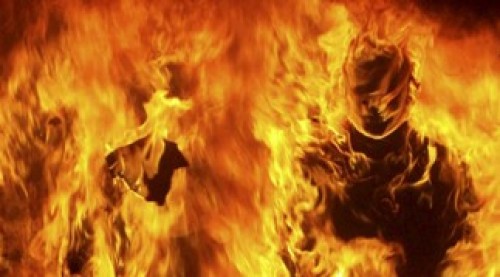
It’s one of those questions that every person wants to ask and every bible scholar cringes to hear:
When an unbeliever dies, will they be tormented in hell forever?
“Prophets and Kings”: The Evangelist Luke’s Curious Doublet

The LORD God of their fathers had sent word to them through His messengers daily without fail, for He had pity on His people and His dwelling-place.
“Showing Proper Humility” complex

If so, then the author of Luke simply regarded Jesus’ warning as an enigmatic saying for which he provided no interpretation…. — wp:paragraph –>
Robert Lindsey’s approach to the Synoptic Problem opens up new avenues for understanding Jesus’ enigmatic warning.
Private: Sensational New Articles at JerusalemPerspective.com!
The first, for example, “Jesus and the Enigmatic ‘Green Tree,'” is a study of Jesus’ saying, “For if they do these things in a green tree, what shall be done in the dry?”
John’s Targumic Allusions
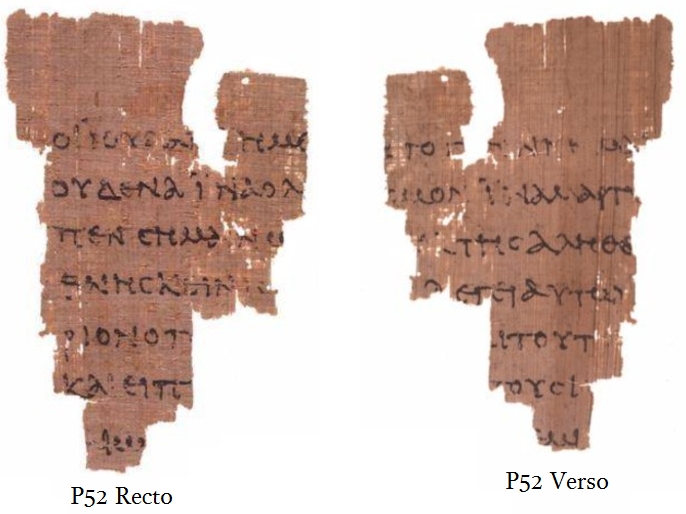
Two other favorite words for “God” in the targum tradition are אִיקָר (ikar, “glory”; variant יְקָר ) and שְׁכִינָה (shechinah, “dwelling; presence; Shechinah”). … The Hebrew of Exodus 25:8, “And I will dwell among them,” is rendered by the same targum as “And I will put my Shechinah among them.”… For instance, John did not use a normal Greek word for “dwell.” Instead he picked a rare verb, σκηνόω (skenoo, “dwell “), which contains the Greek equivalent of the same consonants (s-k-n) as the Hebrew and Aramaic word for “presence, dwelling“—שְׁכִינָה (shechina, “Shechinah”).
JPs New Search Could Transform Your Study

Here are some examples: Matt 6:19-21 or Matt 6-9 Dwelling or Matt 6-9 NOT Dwelling To see more examples and to learn how to capitalize on this new power, we’ve created a special page.
On “Blood” in the Apostolic Decree (Acts 15:19-20)

The second reference is to the offerings eaten by the Jewish people in Leviticus 7:26-27, “Moreover you shall not eat any blood in any of your dwellings whither of bird or beast. … “Therefore I said to the children of Israel, No one among you shall eat blood, nor shall any stranger who dwells among you eat blood.” Whatever man of the children of Israel, or of the strangers who dwell among you, who hunts and catches any animal or bird that may be eaten, he shall pour out its blood and cover it with dust, for it is the life of all flesh. … You shall therefore keep my statues and My judgments, and shall not commit any of these abominations, either any of your own nation or any stranger who dwells among you (for all these abominations the men of the land have done, who were before you, and thus the land is defiled) lest the land vomit you out also when you defile it, as it vomited out the nations that were before you.
Private: Two Neglected Aspects of the Centurion’s Slave Pericope

How to cite this article: JP Staff Writer, “Two Neglected Aspects of the Centurion’s Slave Pericope,” Jerusalem Perspective (2024) .
Hebrew Nuggets, Lesson 24: Messiah (Part 2)
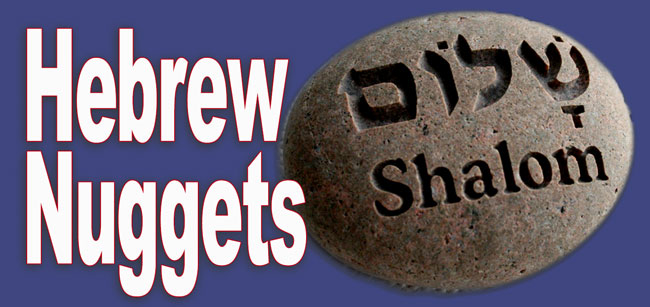
Jesus also referred to himself using the messianic title “Green Tree” (Luke 23:31), a reference to Ezek. 20:47 (see David Bivin, “Jesus and the Enigmatic ‘Green Tree'”).
Hebrew Nuggets, Lesson 33: Gehenna

The modern view of hell as the dwelling place of the devil where the demons torment the damned is a conglomeration of biblical and non-biblical ideas that were not part of the imagery associated with Gehenna. In rabbinic literature ge·hi·NOM is a fiery furnace where the wicked are burned up and obliterated at the final judgement. ge·hi·NOM is not the dwelling place of the devil, nor do demons inflict punishments there.
Feast of the Circumcision (New Year’s Day)
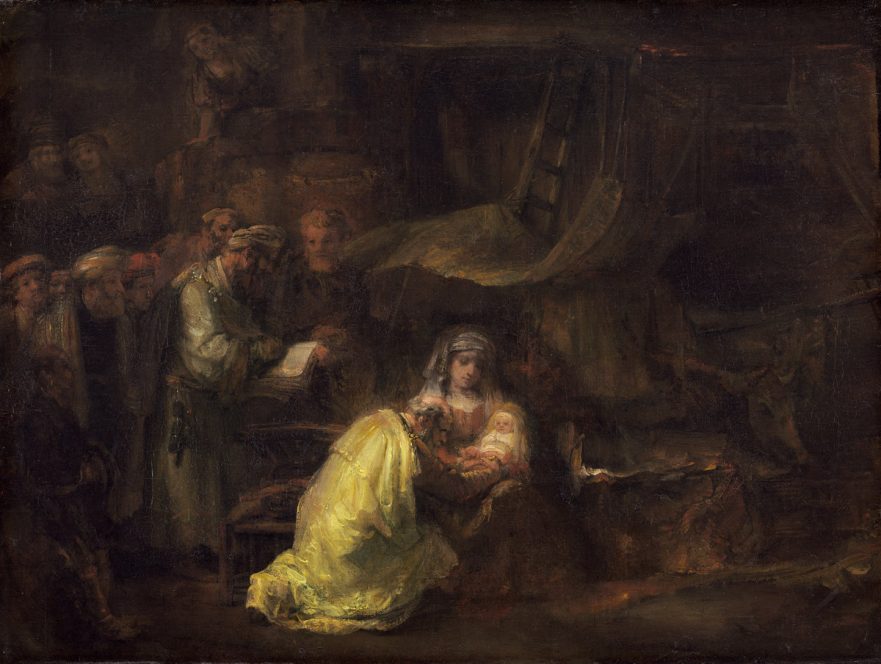
This painting correctly depicts the circumcision of Jesus not in the Temple, but in the family’s private dwelling. … This painting correctly depicts the circumcision of Jesus not in the Temple, but in the family’s private dwelling.
The Sabbath Was Made for Man
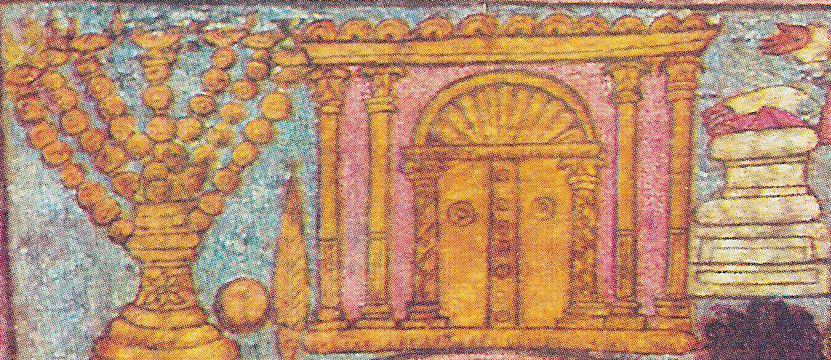
Instead, the enigmatic title—son of man—on this occasion possesses the simple Hebraic sense, “human being,” and refers to his disciples as representatives of humanity.
If Your Eye Be Single

— wp:paragraph –>
The sense given to the enigmatic phrase by scholars to read “good eye” corresponds with the phrase in the following verse, “If your eye evil” (i.e., greedy).

